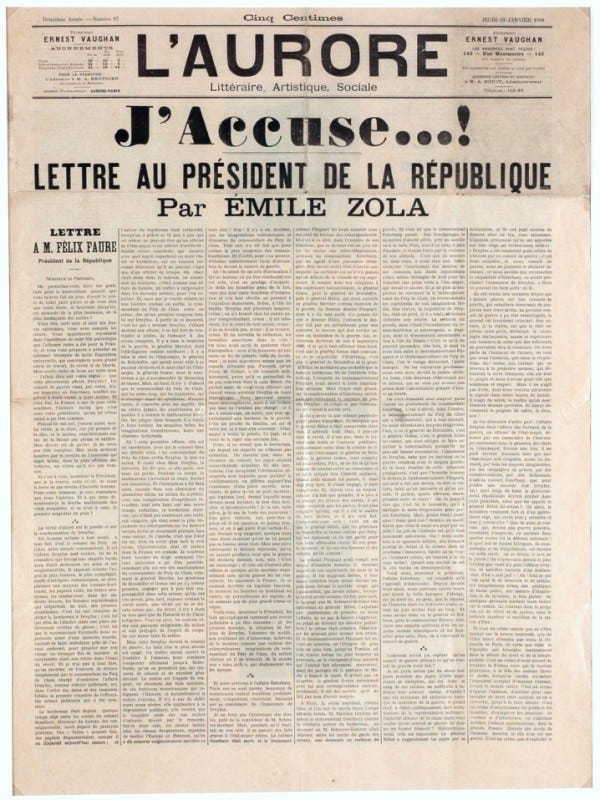December 22nd 》The Struggle for Self and Remembering the Dreyfus Affair
On This Day - A Century Later: The Dreyfus Affair's Relevance Today
On December 22, 1894, the Dreyfus Affair began in France, a saga that would encapsulate the bitterest elements of human nature: prejudice, injustice, and the struggle for redemption.
Alfred Dreyfus, a Jewish officer in the French Army, was wrongly convicted of treason in a climate rife with anti-Semitism.
This story, echoing through time, speaks volumes to anyone grappling with identity crises or societal alienation.
Dreyfus, a man committed to his country, found himself ensnared in a web of deceit and bigotry.
His dedication and identity were overshadowed by the rampant anti-Semitic sentiment in France.
This false conviction wasn't just a personal tragedy for Dreyfus; it became a symbol of the broader injustices faced by minorities, echoing the struggles of those marginalized in society today.
Imagine the isolation Dreyfus felt, a solitary figure against an unforgiving system, his identity reduced to a religious stereotype.
His story relayes to anyone who ever has felt misunderstood, misrepresented, or maligned because of their beliefs, race, or background.
The Dreyfus Affair tore apart the French society, igniting debates and divisions about justice, equality, and national identity.
For those of us today, struggling with our sense of self, facing crises of identity, or grappling with the pain of not fitting in, Dreyfus' plight is a stark reminder of the dangers of a society quick to judge and slow to understand.
His tale is a testament to the resilience needed to stand against societal currents, to maintain one’s integrity in the face of overwhelming adversity.
Dreyfus' exoneration in 1906, after years of tireless efforts by his supporters, notably writer Émile Zola, who penned the famous open letter “J’Accuse…!”, was not just a personal victory but a triumph for justice and truth over prejudice and hatred.
"I accuse...!" (J'accuse...!), open letter published on 13 January 1898 in the newspaper L'Aurore by French writer Émile Zola. In the letter, Zola addressed President of France Félix Faure and accused the government of anti-Semitism and the unlawful jailing of Alfred Dreyfus, pointing out judicial errors and lack of serious evidence.
This resolution, however, came after years of struggle, reflecting the often prolonged and painful journey towards vindication and acceptance.
The Dreyfus Affair is more than a historical event; it's a reminder about identity under siege and the relentless pursuit of truth.
It speaks to the heart of our struggles in contemporary times – the fight against being labeled, the courage to stand up for one's truth, and the relentless pursuit of justice in a world that often seems indifferent or hostile.
For those who feel like outsiders in their own communities, or who battle the crushing weight of societal prejudices, Dreyfus’ story is particularly poignant.
It underscores the importance of perseverance, the need for allies in our battles, and the power of a single voice to ignite change.
The affair galvanized public opinion, mobilized activists, and led to significant changes in French society, much like how movements today are reshaping public consciousness and driving societal change.
In our journey of self-discovery and struggle, the Dreyfus Affair stands as a beacon, reminding us of the enduring human spirit's capacity to overcome injustice.
It's a story that encourages us to question, to challenge, and to fight for what is right, even when the odds seem insurmountable.
It teaches us about the importance of standing up for others, of being allies in their struggles, and of the collective power we hold when we unite against injustice.
As we reflect on this day in history, the echoes of Dreyfus' ordeal reverberate in our own lives.
His account is a powerful reminder that the journey towards understanding and acceptance is fraught with challenges, but it's a journey worth taking.
It urges us to hold onto our identity, to fight for our place in the world, and to always stand on the side of truth and justice.
The Dreyfus Affair, more than a century later, remains a powerful symbol of the resilience needed in the face of adversity, of the courage required to maintain one's identity against societal pressures, and of the enduring quest for justice.
For anyone struggling with their identity or facing a crisis of faith in humanity, Alfred Dreyfus' story is a reminder that while the road to redemption is long and arduous, it is also filled with hope and the potential for change.



